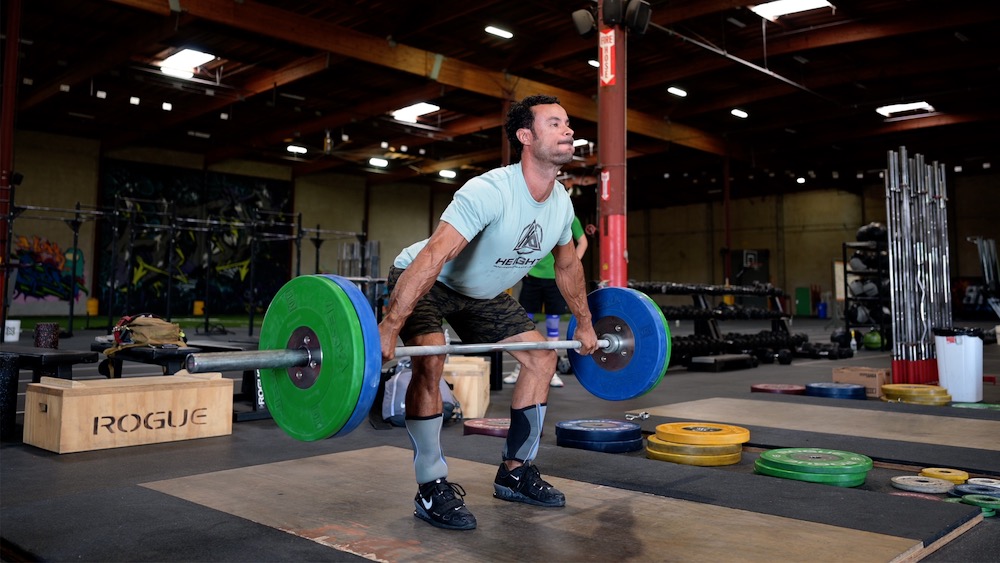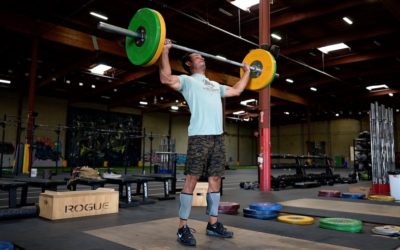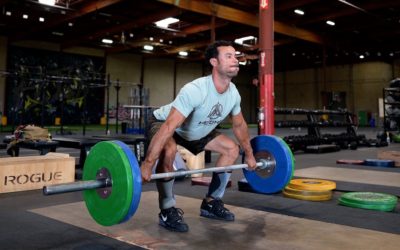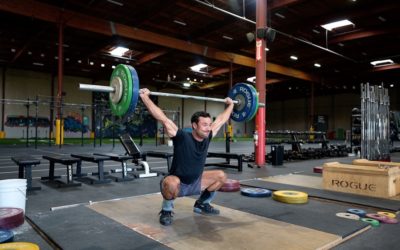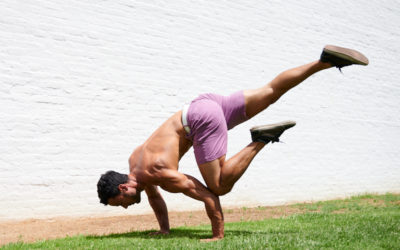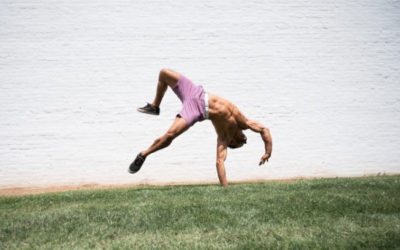The Hang Snatch from the knee is an accessory exercise for the Snatch in Olympic weightlifting. It assists in rate of force development as well as encourages a fast turnover and lockout in the receiving position.
Points of Performance:
- Deadlift the barbell up as similarly to your clean pull as possible
- Hinge at the hips while simultaneously bending the knees to load the muscles in the front and back of your legs until the bar is at the top edge of your patella
- Shoulders should be slightly in front of the barbell when viewed from the side
- Pause at the top of the knee before initiating barbell movement up the thigh and into the hips
- Elbows should face towards the outside and remain straight until vertical drive is complete
- Arms aggressively pull your body down into the correct receiving position
- Receive the bar in a full squat
Error Correction:
- Balance too far forward/backwards in Snatch pull
- Jumping excessively forward or backwards
- Excessive straightening of the knees during the first pull
- Early initiation of the 2nd pull
Common Faults:
- Yanking/Failing to pause or control barbell when lowering into hang position
- Knees shifting forward to accommodate weak low back (shoulders behind bar at knee)
- Hinging primarily at the hips to only use hamstrings and no quadriceps (shoulders far ahead of bar at knee)
- Casting out from the knee instead of driving the bar up the thigh into the hips
- Spreading the feet excessively to receive above parallel
Training Effects:
- Strengthens low back and lats
- Teaches athlete to trust legs/timing
- Increases speed of turnover (this effect is amplified the higher the hang position).
- Emphasizes vertical drive in 2nd pull
Other Benefits:
- Can be effective in teaching an athlete to relax their arms and trust their legs
- Effective at lighter weights to develop mechanics and consistency while still allowing recovery between tough workouts.
See also: Power Snatch, Hang Power Snatch (Below Knee), Hang Power Snatch (Upper Thigh), Dip Power Snatch
